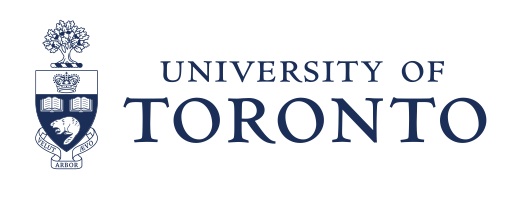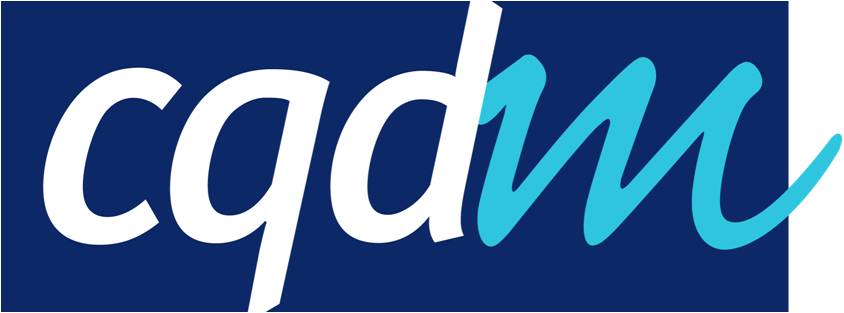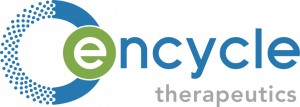Platform for cyclizing peptides promises to increase efficiency of early-stage drug discovery
BOSTON, June 18, 2012 – Encycle Therapeutics, a MaRS Innovation spin-off company, has created a ground-breaking chemistry platform for cyclizing peptides that promises to increase the efficiency of the early-stage drug discovery process.
Peptides have long been sought after as therapeutics due to their high specificity — they can hit specific cellular targets, especially complex protein-protein interaction targets implicated in cancer, cardiovascular disease and metabolic disorders.
A French version of this release is available via CQDM’s website.
In their linear form, however, peptides are unstable. When used as drug-delivery agents, they break down before reaching therapeutic targets or fail to permeate cell walls, presenting a long-standing challenge to medicinal chemists.
Encycle‘s breakthrough chemistry platform stabilizes linear peptides for drug development by cyclizing them. This process has demonstrably increased the drug-like properties of these molecules, increasing their stability in the body and providing a higher degree of cell permeability.
The platform adapts to any linear peptide input and has the power to generate libraries of compounds to facilitate drug discovery and development.
 This technology, discovered in Professor Andrei Yudin‘s chemistry laboratory at the University of Toronto, will be developed with the collaboration of Professor Eric Marsault, specialized in medicinal chemistry at the Institut de Pharmacologie de Sherbrooke of Université de Sherbrooke.
This technology, discovered in Professor Andrei Yudin‘s chemistry laboratory at the University of Toronto, will be developed with the collaboration of Professor Eric Marsault, specialized in medicinal chemistry at the Institut de Pharmacologie de Sherbrooke of Université de Sherbrooke.
Together, they will demonstrate that Encycle’s foundational chemistry technology functions for a wide variety of peptides and that the platform can hit therapeutic targets of interest. Encycle will then be well positioned to pursue discovery-stage relationships with the pharmaceutical partners involved in the project around targets of their choosing.
 “It costs over $1 billion to bring a new drug to market under the current high through-put pharmaceutical discovery model,” says Yudin, professor of Chemistry at U of T and Encycle Founder. “Instead of randomly searching millions of compounds, Encycle’s platform will allow us to design a peptide molecule with small molecule properties, such as stability and cell permeability, while remaining more likely to interact with a targeted therapeutic area. In theory, this approach would save time, money and reduce overhead risk.”
“It costs over $1 billion to bring a new drug to market under the current high through-put pharmaceutical discovery model,” says Yudin, professor of Chemistry at U of T and Encycle Founder. “Instead of randomly searching millions of compounds, Encycle’s platform will allow us to design a peptide molecule with small molecule properties, such as stability and cell permeability, while remaining more likely to interact with a targeted therapeutic area. In theory, this approach would save time, money and reduce overhead risk.”
“The approach pioneered by Andrei Yudin is remarkable for its efficiency in the synthesis of macrocycles, which are otherwise very difficult to reach and thus difficult to exploit in drug discovery,” says Marsault. “This collaboration will unlock the potential of this class and provide much-needed new classes of drug candidates able to mimic the natural structural elements of proteins.”
“ This innovative project is a successful result of our established commitment towards technology transfer of excellent research and partnering with the private and public sectors,” says Jacques Beauvais, vice-rector of research at the Université de Sherbrooke.
This innovative project is a successful result of our established commitment towards technology transfer of excellent research and partnering with the private and public sectors,” says Jacques Beauvais, vice-rector of research at the Université de Sherbrooke.
The project has received $1 million in seed funding, largely derived through The Québec Consortium for Drug Discovery‘s funding programs, and has attracted interest from four pharmaceutical companies.

The joint provincial project is one of two pilot projects undertaken as part of the Ontario-Québec Life Sciences Corridor, which was announced at the 2011 BIO International Convention to foster existing strengths within the two provinces and increase innovation, productivity, investment and job creation.
“In this project, the strong synergy between the investigators from Québec and Ontario and the high interest from the pharmaceutical companies is remarkable,” says Max Fehlmann (right), president and CEO of CQDM. “We strongly believe that this is the first of many successes to flow through the Ontario-Québec Life Sciences Corridor.”

“Encycle Therapeutics’ technology will enhance and accelerate the pace at which disruptive technologies become available to develop novel therapeutics,” said Raphael Hofstein (below right), president and CEO of MaRS Innovation. “With a consortium of pharmaceutical companies engaged, Encycle is well-positioned to leverage its platform into novel therapeutics for unique targets.”
Based in part on Encycle’s success, and that of another undisclosed pilot project, CQDM and MaRS Innovation are partnering with the Ontario Centres of Excellence (OCE) and the Ontario Brain Institute (OBI) to launch the Québec/Ontario CQDM Funding Program, which will support similar collaborative research projects that seek new tools for biopharmaceutical research.
About MaRS Innovation
MaRS Innovation (MI) is the commercialization agent for the exceptional discovery pipeline from 16 leading Ontario academic institutions. As a single-entry point to total member research activity of $1B in annual research and development, MI provides an easy gateway for investors and licensees who wish to access technology assets in Ontario. Supported by the Government of Canada through the Networks of Centres of Excellence, by the Government of Ontario through the Ontario Centres of Excellence, and by its member institutions, MI is a transformational partnership that turns research strengths into real commercial opportunities. MI’s portfolio includes the most promising assets and advances commercialization into global markets through industry partnerships, licensing and company creation.
About the CQDM
The Québec Consortium for Drug Discovery (CQDM) is a meeting ground for all stakeholders in biopharmaceutical research. Its principal mission is to fund research projects carried out in partnership between the academic and hospital milieus in the public sector and the pharmaceutical and biotechnology industries in the private sector. An innovative Canadian initiative, the CQDM has a twofold goal: to accelerate the drug discovery process and to develop safer and more effective drugs. CQDM is funded through contributions from Pfizer Canada, AstraZeneca, Merck, Boehringer Ingelheim (Canada) Ltd., GlaxoSmithKline, Eli Lilly Canada Inc., the Business-Led Networks of Centres of Excellence (BL-NCE), the Ministère du Développement Économique, de l’Innovation et de l’Exportation (MDEIE) du Québec and the Fonds de recherche Québec – Santé (FRQS). For more information: www.cqdm.org.
About the Université de Sherbrooke
The Université de Sherbrooke lies in the heart of one of the three major research poles in the province of Québec. Recognized for its focus on innovation, Université de Sherbrooke is a premier partner of higher and regional governments, promoting social, cultural and economic development. It distinguishes itself by the strong growth of its research activities over the past few years, its successes in technology transfer, and its initiatives in open innovation in collaboration with industrial and social environments.
By Elizabeth Monier-Williams, marketing and communications manager.


